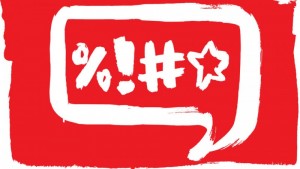I have heard hate speech in many situations in my life – so much so that I have become accustomed to it, even grown to expect it in some instances. Throughout middle and high school, I heard it so often that I knew the patterns, knew the lead-ins, and knew when I had to brace myself for the sting. Today, however, I did not brace myself.
“Faggot.” “Stop being a faggot.” “What is he? Some kind of faggot?” These all-too-familiar words continue to echo in my head. These are the words I have shielded myself against for years, the words I have learned to block out, coming from the people I have learned to avoid. These are the words that people use when committing hate crimes, and the words that were used for decades to oppress people just because they loved differently.
I never expected these words at lunch in Annenberg from a group of Harvard freshmen.
My guard was down, because I had forgotten what it felt like to hear these words. I know better now. I will not repeat that mistake.
Fair Harvard, the bastion of liberal values, a progressive environment where activists stand up against hate and students fight for progress in the belief that they can change the world. It is the place where workers and students unite to fight for health care, where students write plays about Black Lives Matter, where they organize rallies and marches to support survivors of sexual assault. It is the place where mental health is important and QSA is an established organization and where social justice is an integral pillar of student life. The students at Harvard have taught me how to embrace progressive movements and how to fight against administrative oppression. They have supported me, so much so that sometimes I can forget that the world outside of Johnston Gate does not care about social justice in the same homogeneous way as Harvard students. We fight against the Harvard administration to eradicate the structural oppression that continues at our school, and students may clash with each other over whether or not a classroom should be a safe space, but these disagreements seem to be more intellectual than hostile.
“You’re such a fag.”
Even as recently as this month, President Faust, along with Georgia Congressman John Lewis, commemorated a plaque at Wadsworth House to honor Bilhah, Venus, Titus, and Juba, four slaves who lived and worked there in the 1700s. The Harvard Foundation for Intercultural and Race Relations is going to unveil a portrait in Annenberg of Richard T. Greener, the first African-American graduate of Harvard on April 28th. Dean Khurana has successfully pressured three final clubs into becoming more inclusive student groups. The Title IX Office has asked Our Harvard Can Do Better for input on its new FAQs about sexual assault policy. The UC has sponsored various events to discuss mental health, sexual assault policy, physical health, and inclusivity. The administration of Harvard is catching up to the demands of its students, and structural oppression at Harvard is slowly being diminished.
“Tell him that he’s a faggot.”
My little group of like-minded friends and I have frequent discussions on activism, politics, and campus issues, yetdd we usually come to a consensus on whatever issue we debate. I had grown so used to being understood and having my friends agree with me. I was no longer afraid to believe in social justice, the way I had been in my conservative hometown during high school. I had grown accustomed to a student body that was well informed and shared my beliefs. I thought that, at the very least, Harvard students are respectful and above making purposefully insensitive comments.
“Fag.”
But today, at table A11, as I sat down with my plate of red spiced chicken breast and broccoli, I overheard that word for the first time since leaving Colorado Springs to come to Cambridge. Two tables away, Dean Khurana was sharing a meal in Annenberg with a group of excited, overeager freshmen. But here were three Harvard students using this hate speech, laughing in their matching Harvard Men’s Lacrosse jackets, unaware that just three seats away, I was listening.
I said nothing to them. I was too shocked to think of anything to say. I held it in, reverted back to middle school, because I didn’t want to believe that I was hearing this word from one of my peers yet again – that I hadn’t left that behind. I thought that, at least at Harvard, we had won that battle. The culture of Harvard makes us believe that the world shares our views, and that what we believe in is right. Puncturing the bubble of liberalism at Harvard is painful, but it is as easy as hearing a single derogatory word from across the table.
While those who perpetuate structural oppression often belittle the term “safe space,” it is not an invalid concept, even at a university as liberal as Harvard. We need safe spaces on our campus, because hate is insidious, wedging its way into exclusive brick buildings, suffocating the voices that would combat it. We do not need safe spaces because we want to be coddled, or because we are weak; it is because we are strong, but it is exhausting to live among hatred. Harvard University is not a safe space, because hate does not cease to exist once you step onto campus.
“You’re a faggot.”
I had forgotten how much those words could hurt.
Image source: shutterstock/speech bubble
